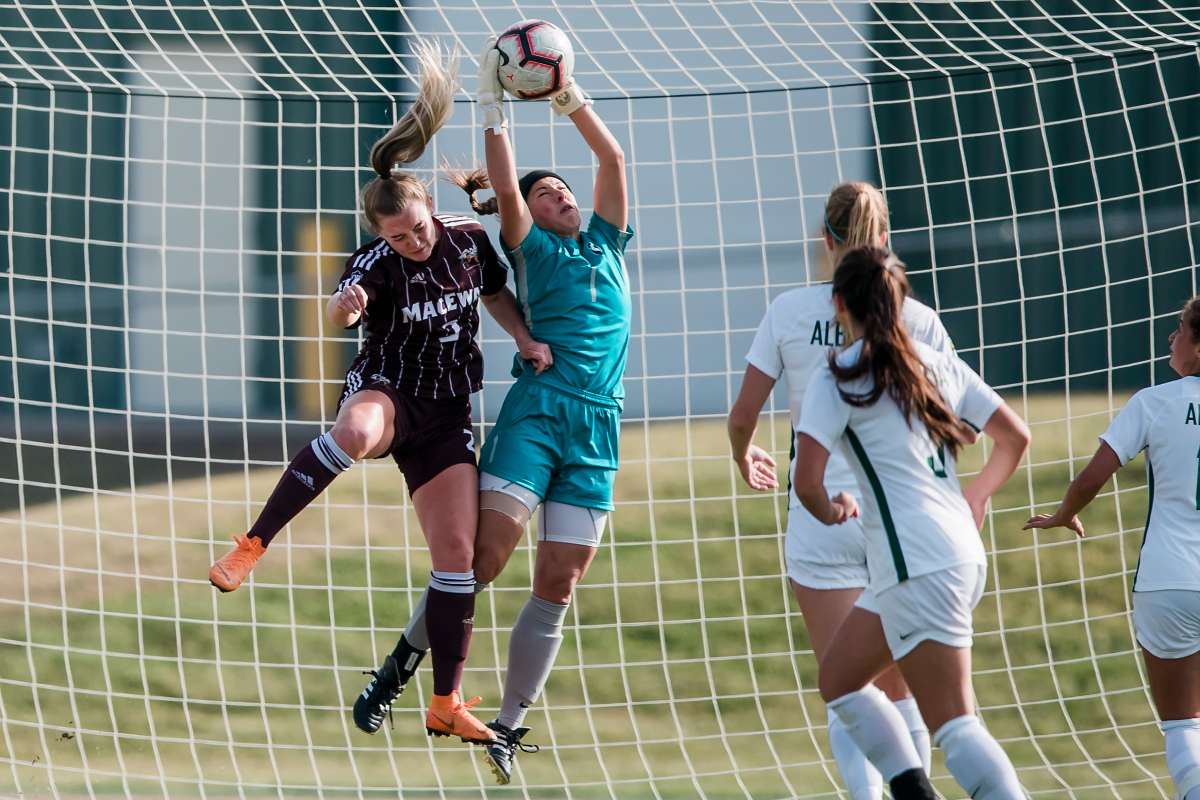
Pandas goalkeeper and Academic All-Canadian Ashley Turner’s advice for balancing academics and athletics? Keep an eye on your goal. Image supplied, photo credit: Don Voaklander
How do you balance 30 hours of soccer practice a week, studying for exams, and maintaining a top-notch GPA? For Academic All-Canadian and Faculty of Science undergraduate student Ashley Turner, her solution is on-brand as Pandas starting goalkeeper—keeping your eye on your goal.
“I started playing soccer when I was four years old, and I’ve wanted to go to medical school since I was in Grade 4,” said Turner, who is in her third year of undergraduate studies majoring in psychology. “When I got to the University of Alberta, to me there was no question that I was going to be in the Faculty of Science. It was the only thing I applied for, the only place I wanted to get into—and now I’m here.”
Recognized at last semester’s Academic All-Canadians breakfast, Turner was one of 29 student-athletes in the Faculty of Science to receive awards for maintaining a GPA of 3.2 or higher. 162 Academic All-Canadians were recognized across campus—but don’t let that record-breaking number fool you. It takes a lot of hard work, as Turner explains:
“In season, we typically spend more than 30 hours a week training, split between practices, video reviews, and workouts,” said Turner. “On an average day, you might end class at four o’clock, head to practice, and then not get home until nine o’clock. And then it’s time to study.”
So what keeps Turner motivated when she gets home from practice, and it’s time to hit the books?
“For me, it’s definitely the satisfaction of achievement, of getting good grades at the end of it all. I want to go to medical school—and I’ve wanted that for a long time. If I don’t deliver that level of academic performance, I know it will affect that dream,” said Turner. “It keeps me motivated to keep my eyes on my long-term goal.”
How academics and athletics play off each other
“I felt honoured to receive this award, because a lot of the time the hours you put in as a varsity athlete can be hard for others to see,” said Turner. “Recognition like this really makes you feel like your hard work is being noticed.”
Success in both academics and athletics isn’t always a balancing act, however, says Turner. There are lessons from the field that can help in the classroom and the lab—and vice versa.
“There’s something about being a varsity athlete that brings out the best in you, in a lot of different aspects. We’re competitive, so we want to get good GPAs, we want to perform well. It makes you balance your time, makes you develop connections with others, and learn to work as part of a team.”
“Of course,” added Turner with a laugh, “I wouldn’t say no to a few more hours in the day.”
In a Bachelor of Science program, you will receive specialized scientific training in various areas of science and develop transferable skills that prepare you for countless career paths. Start here! Check out our complete list of BSc options.